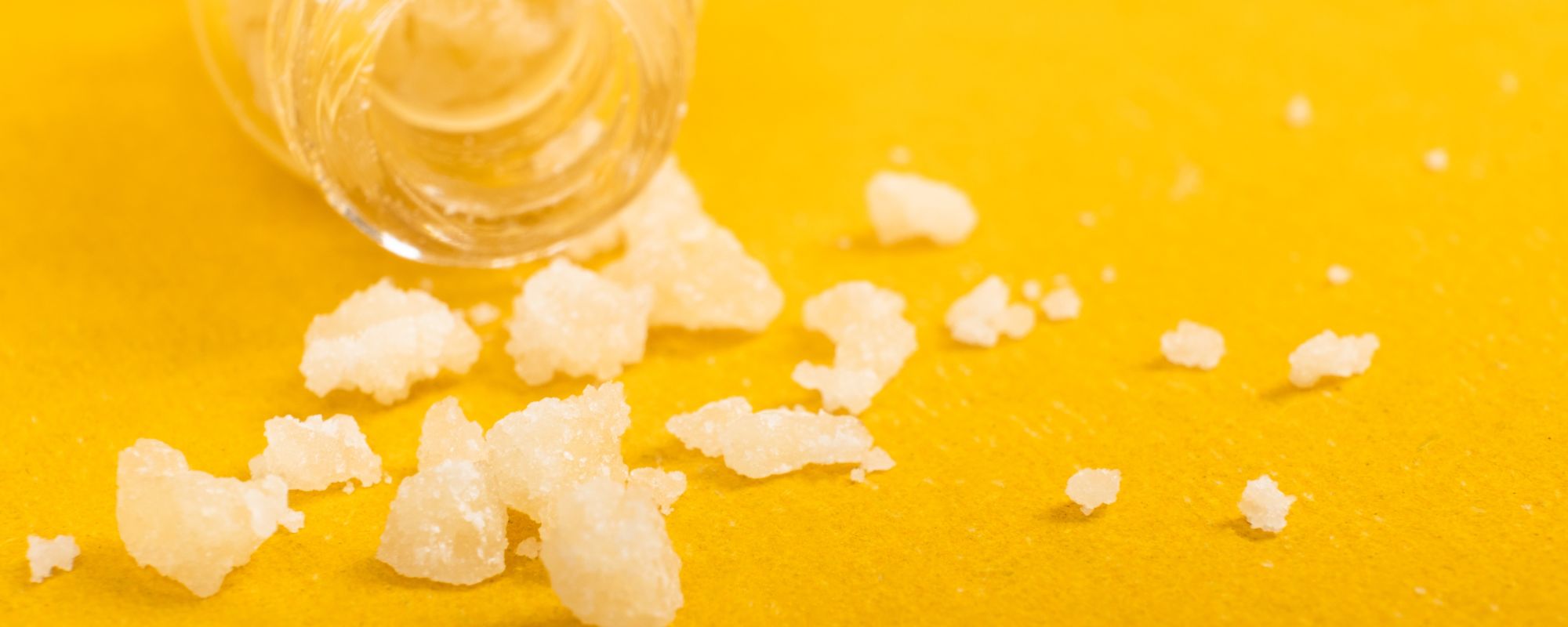For those who have been using marijuana for a long period of time, stopping this substance can lead to THC withdrawal. This can cause them to develop unpleasant withdrawal symptoms, which can be difficult to manage on your own. Marijuana detox can be challenging, but there are resources available to help.
Puget Sound Recovery Centers offers cannabis detox services to help you navigate the more difficult effects of marijuana withdrawal. We can provide the support and structure you need to achieve lasting sobriety.
What Is Marijuana?
Marijuana, also called cannabis, weed, pot, or herb, is a psychoactive drug derived from the Cannabis sativa plant. The Cannabis plant contains hundreds of chemicals, including THC (delta-9-tetrahydrocannabinol), the main psychoactive compound that produces the “high” sensation.
It is important to be aware that marijuana use can have legal and health risks. The laws surrounding marijuana use vary depending on your location. In the United States, marijuana is illegal under federal law but legal for recreational use in some states.
Marijuana Nicknames and Street Names
Marijuana has a wide range of nicknames and street names; some are more common than others. Some of the most popular general terms include weed, pot, dope, grass, reefer, herb, Mary Jane, bud, ganja, blunt, and chronic.
How Do People Use Marijuana
Marijuana is typically dried, shredded leaves, stems, seeds, and flowers of the Cannabis sativa or Cannabis indica plant. It can be smoked in a joint, blunt, or bong, vaped, or consumed in food or drinks (edibles).
How Many People Use Marijuana?
The World Health Organization (WHO) estimates that about 147 million people, or roughly 2.5% of the world’s population, consume cannabis annually. This makes it the most commonly used psychoactive substance under international control.
In the United States alone, this number ranges around 55 million. This number has risen in recent years, more than doubling since 2013. It is important to note that marijuana use is more common among young adults and men than in other demographics.
What Is Marijuana Dependence?
Marijuana dependence, also referred to as cannabis use disorder, occurs when someone continues to use marijuana despite experiencing negative consequences. It is important to note that not everyone who uses marijuana becomes dependent.
However, this risk can be increased with chronic use of marijuana. Individuals who are still in their teens or who use this substance as a coping mechanism for stress or other issues may also have a higher risk of dependence.
Signs Someone Is Dependent on Marijuana
Some signs that someone may be dependent on marijuana include:
- Needing to use more and more marijuana (tolerance) to get the same effect.
- Experiencing withdrawal symptoms when they try to quit (irritability, sleep problems, anxiety).
- Continuing to use marijuana even though it causes problems in their relationships, work, or school.
- Having difficulty controlling their marijuana use.
Long-Term Risks of Marijuana Use
Marijuana dependence can have negative consequences on a person’s health, finances, relationships, and work. There are a number of potential long-term risks associated with marijuana use, especially for frequent or heavy users.
- Brain Development: Marijuana use during adolescence and young adulthood, when the brain is still developing, may impair cognitive function.
- Mental Health: Research suggests a link between heavy marijuana use and an increased risk of developing mental health problems. This includes schizophrenia, psychosis, and depression.
- Respiratory Problems: Smoking marijuana can irritate the lungs and airways. This can lead to problems like chronic bronchitis, cough, and an increased risk of respiratory infections.
- Addiction: While not as addictive as some other substances, marijuana can be psychologically addictive. This risk is higher for people who start using young and use heavily.
- Reproductive Health: Heavy marijuana use by males may lower sperm quality and quantity. For pregnant women, marijuana use can potentially impact fetal development.
Reach Out For Help With Addiction
Are you or a loved one struggling with addiction?
Royal Life Centers at Puget Sound is here to help you recover. Because we care.
What Is Marijuana Detox?
Marijuana detox refers to the process of eliminating THC, the psychoactive compound in marijuana, from the body. When detoxing from marijuana in a professional treatment environment, you can generally expect the following:
- Evaluation
- Supportive care
- Therapy
- Relapse prevention planning
Symptoms of Marijuana Withdrawal
Marijuana withdrawal is experienced by people who quit marijuana, especially those who have been using it frequently or heavily. While typically not dangerous, the symptoms can be uncomfortable and make quitting challenging.
Some of the most common symptoms associated with marijuana withdrawal include:
- Irritability
- Anxiety
- Depression
- Cravings
- Difficulty sleeping (insomnia)
- Strange dreams
- Loss of appetite
- Stomach aches or cramps
- Headaches
- Sweating
- Shaking or tremors
How Long Is Marijuana Detox?
The severity and duration of withdrawal symptoms can vary depending on the individual and their marijuana use patterns. Generally, though, marijuana detox will take anywhere from a few days to a couple of weeks.
Symptoms typically peak within the first week of quitting marijuana. After this, most symptoms subside within 2-3 weeks. In some cases, individuals may experience sleep problems for up to five weeks after quitting.
Tips for Long-Term Sobriety
When it comes to achieving long-term sobriety, there are several things you can do to make your recovery easier. For starters, it is important to surround yourself with positive and supportive people who encourage your sobriety. This could include friends, family, therapists, or support groups.
You should also practice healthy ways of managing stress, cravings, and other triggers that could lead to relapse. Exercise, relaxation techniques, spending time in nature, or creative hobbies can all be helpful.
Sometimes, substance abuse stems from deeper emotional or mental health issues. If this is the case for you, you may want to consider therapy to address these underlying causes and develop healthier coping skills.
Lifestyle Changes
There are several lifestyle changes you can make to support your sobriety. These include:
- Avoid temptation: If certain places or people associate with your substance use, avoid them for a while. This may also involve removing substances from your home environment.
- Find new hobbies and interests: Fill your free time with activities you enjoy that don’t involve substance use. Explore new hobbies, reconnect with old interests, or volunteer for a cause you care about.
- Practice mindfulness: Mindfulness practices like meditation can help you become more aware of your thoughts, feelings, and cravings without judgment. This allows you to respond to them in a healthy way.
- Be patient with yourself: Relapses can happen. The important thing is to learn from them, pick yourself up, and recommit to your sobriety goals.
Avoiding Triggers
Triggers are one of the biggest factors in a person’s risk of relapse during recovery. It is important to be aware of situations, people, or emotions that could trigger a relapse. Developing a plan to avoid these triggers or having strategies in place to cope with them healthily can help ensure you maintain your sobriety.
Setting a Routine
The structure is essential for those in recovery. It is important to set a routine for yourself that will provide you with this structure. This might include setting specific times for your meals, responsibilities, and goals to follow throughout the day.
Remember, long-term sobriety is a journey, not a destination. There will be challenges along the way, but with the right support system, healthy habits, and a commitment to your well-being, you can achieve lasting recovery.
Marijuana Detox Programs
At Puget Sound Recovery Centers, our marijuana detox program is designed to give you the best start to your recovery journey. We believe there is no one-size-fits-all approach, tailoring our treatment plans to our client’s needs. Our program incorporates elements such as:
- Medical evaluation: Our healthcare professionals will assess your overall health and marijuana use history to determine the best course of action.
- Supportive care: This may involve medication to manage withdrawal symptoms like anxiety, trouble sleeping, or muscle cramps.
- Therapy: Individual or group therapy sessions can help address the underlying reasons for marijuana use and develop coping mechanisms for cravings.
- Nutritional counseling: Learning about healthy eating habits can provide your body with the nutrients it needs to function optimally during detox.
- Exercise guidance: Regular exercise can improve mood, reduce stress, and promote overall health and well-being.
- Relapse prevention planning: Developing a plan to identify and avoid triggers and manage cravings can help you stay committed to sobriety in the long term.
Recovery Support Groups
There are several recovery support groups available to help those recovering from marijuana addiction. Some of the most popular include:
- Marijuana Anonymous (MA): This is a 12-step support group specifically designed for people struggling with marijuana addiction. MA follows a similar structure to Alcoholics Anonymous (AA). It offers a network of peers who understand the challenges of quitting marijuana.
- SMART Recovery: While not marijuana-specific, SMART Recovery offers a science-based approach to addiction recovery. This can be helpful for people struggling with marijuana use.
- Online Support Groups: There are several online communities and forums dedicated to marijuana addiction recovery. These can be a valuable source of support, especially for those who find it difficult to attend in-person meetings.
If you are looking for professional treatment to help you overcome marijuana addiction, Puget Sound Recovery Centers is here to help. We offer the structure and care you need to build a solid foundation for long-term recovery.






